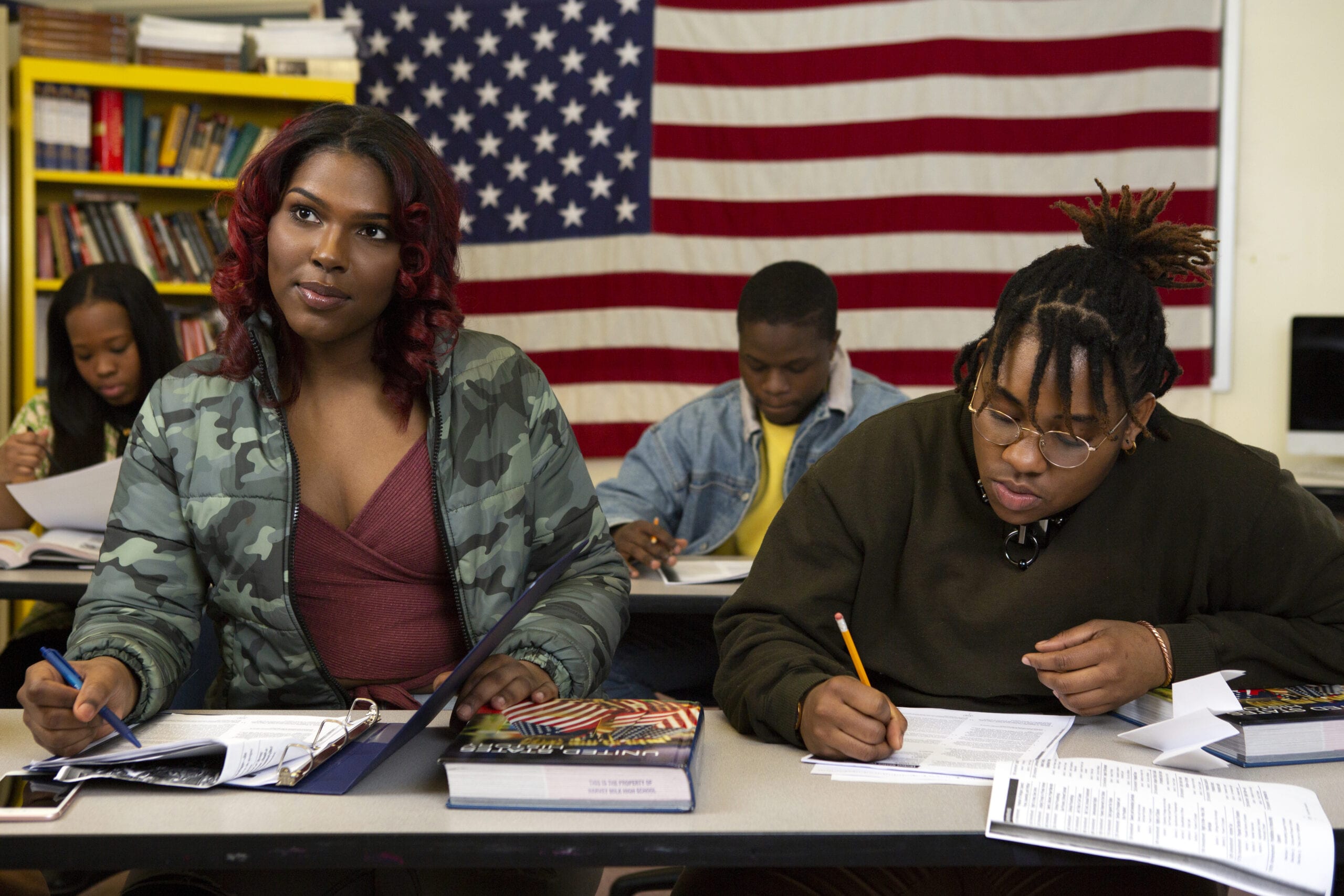A new survey is highlighting the lives of Black transgender, gender nonconforming and non-binary Americans.
The Black Futures Lab, an organization that “transforms Black communities into active, interdependent, responsive public partners that change the way power operates,” launched its Black Census Project last year, the largest survey of Black people conducted in the U.S. since the Reconstruction era. Last spring, the Black Census released When the Rainbow is Not Enough: LGB+ Voices in the 2019 Black Census, a report that aimed to understand how race, sexual orientation and homophobia affect Black gay, lesbian and bisexual people in the U.S.
In December, it released another report, Beyond Kings and Queens: Gender and Politics in the 2019 Black Census, which focuses specifically on the experiences of Black trans, gender nonconforming, non-binary and genderqueer Americans. “It was important for us, in the context of movements that tend to jumble everything together, to be very specific about the unique experiences that trans, gender nonconforming, non-binary and genderqueer people experience in their lives every single day,” Alicia Garza, principal of Black Futures Lab and co-founder of Black Lives Matter, told us in an interview.
Here are some key takeaways from the survey:
Who identifies as trans and gender nonconforming?
- Sixty-five percent of Black trans, gender nonconforming and genderqueer respondents are under the age of 30, which is consistent with findings from other surveys.
- Seventy percent of trans respondents live in the South. This is compared to 46 percent of cisgender respondents, and 44 percent of gender nonconfoming/non-binary respondents.
Economic issues affecting Black trans and gender nonconforming people
- Transgender and gender nonconforming/non-binary respondents have the highest rates of poverty and extreme economic insecurity. They also have lower incomes than cisgender respondents.
- Ninety-one percent of trans and gender nonconforming/non-binary participants reported their household income as below $50,000 USD a year, compared to 61 percent of cisgender people.
- Black trans women reported the lowest income of all respondents. Twenty-nine percent reported their yearly income as below $15,000, compared to 16 percent of all other respondents.
- Throughout the census, people of all genders agreed that low wages and economic policy issues are two of the most pressing issues that Black communities face. Proposed remedies included: Raising the minimum wage to $15/hour; implementing more affordable health care, child care, housing and college costs and paying reparations to African Americans.
Education levels among Black trans and gender nonconforming people
- The census shows that trans respondents have significantly lower rates of education than cisgender respondents.
- Fifty-five percent of trans men and women had no formal education beyond high school. Some factors that contribute to this high rate include age (since the majority of respondents are under 30, some may still be in high school), and transphobic, hostile environments that often lead to missed days at school or dropout.
- While more than half of trans men and women in the census have no formal education beyond high school, trans women have the lowest college completion rate.
- Only 14 percent of trans men and women have completed college.
Activism, social justice and political engagement
- Trans and gender nonconfoming/non-binary respondents were more likely to attend a protest, meeting or demonstration or volunteer with a social justice organization, despite being the least likely to vote.
- Sixty-four percent of trans men, 56 percent of trans women and 67 percent of gender nonconforming respondents believed that politicians do not care about them, compared to 53 percent of cisgender respondents.
- Trans men and gender nonconforming/non-binary respondents were more likely to see the sexual harassment of women in the workplace as a major problem (71 and 82 percent respectively). This compared to just 57 percent of cisgender men, and 68 percent of trans women and cis women.
- At 92 percent, gender nonconforming/non-binary respondents were most likely to support policies promoting safe and affordable abortion care. This is compared to 80 percent of cisgender women, 72 percent of cisgender men, 78 percent of trans men and 70 percent of trans women.
Violence against trans women
- Cisgender men and women are less likely to consider violence against trans women as a major problem. Despite the high number of Black trans women regularly being killed in the U.S., only 42 percent of cis men and 59 percent of cis women see it as an issue.
Police relations
- While all genders share similar views of the poor relations between the police and Black communities, trans and gender nonconforming/non-binary respondents hold even more critical views of the police than others.
- Fifty-nine percent of trans and gender nonconforming/non-binary respondents rate the relationship between Black communities and police as “somewhat” or “extremely” bad, compared to 43 percent of cisgender respondents.
Read the full report here.


 Why you can trust Xtra
Why you can trust Xtra


